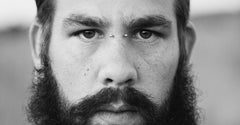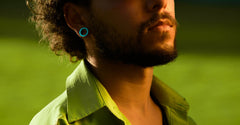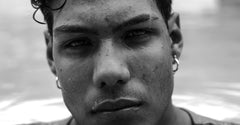Your scalp is like any other skin on your body and needs to be hydrated to stay healthy and flake-free. Just as you would moisturize your face or body, you need to moisturize your scalp. A dry scalp can lead to dandruff, itchiness, and even hair loss.
There are a few different ways you can hydrate your scalp. You can use a scalp massager with lotion or essential oils. You can also apply aLeave-in conditioner or oil to your scalp after shampooing. And finally, you can make sure you're drinking enough water every day.
Drinking plenty of water is important for keeping your entire body hydrated, including your scalp. aim for 8 glasses of water a day. You can also eat foods that are high in water content, such as fruits and vegetables.
When it comes to shampooing, avoid shampoos that contain alcohol, sulfates, and other harsh chemicals. These ingredients can actually dry out your scalp and make it more difficult to retain moisture. Look for gentle, hydrating formulas instead.
Finally, remember that a healthy scalp leads to healthy hair. So take care of your scalp and it will take care of you!
I massage the leave-in conditioner into my scalp and focus on any areas that feel dry or tight. I then comb it through my hair and style as usual. This helps to lock in moisture and prevent my scalp from feeling dry and irritated.
Do you have any tips for keeping your scalp healthy and hydrated? Share them in the comments below!
Wash with a Moisturizing Shampoo
One of the best ways to hydrate your scalp is to use a moisturizing shampoo. Look for products that contain hydrating ingredients like aloe vera, glycerin, or coconut oil. Avoid shampoos with harsh chemicals as these can strip away natural oils and leave your scalp feeling dry and irritated. Instead, opt for a gentle, sulfate-free shampoo.
Condition Regularly
In addition to using a hydrating shampoo, make sure to condition your hair regularly. This will help lock in moisture and prevent your scalp from drying out. Choose a conditioner that contains natural oils or silicone-based ingredients to help keep your scalp hydrated.
Use a Scalp Massager
Another great way to hydrate your scalp is to use a scalp massager. This simple tool can help improve blood circulation and promote healthy hair growth. Scalp massagers are also beneficial for relieving stress and tension headaches. To use a scalp massager, simply apply some pressure to the device and massage it into your scalp in a circular motion.
Apply a Hair Mask
Hair masks are an excellent way to give your hair and scalp a deep conditioning treatment. There are a variety of hair masks available on the market, so you can choose one that best suits your needs. If you have dry or damaged hair, look for a mask that contains hydrating ingredients like avocado or olive oil. For an extra boost of hydration, try applying a hair mask before shampooing.
Avoid Hot showers
While hot showers feel amazing, they can actually be quite drying for your skin and scalp. If you must take a hot shower, limit it to once per week. Otherwise, stick to cool or lukewarm water as this will be less irritating and cause less water loss.
Drink Plenty of Water
Last but not least, make sure you're drinking plenty of water every day. Staying hydrated from the inside out is crucial for maintaining healthy skin and hair. Aim to drink eight glasses of water per day, or more if you live in a hot climate or engage in strenuous activity.




